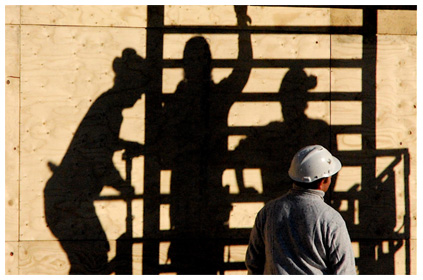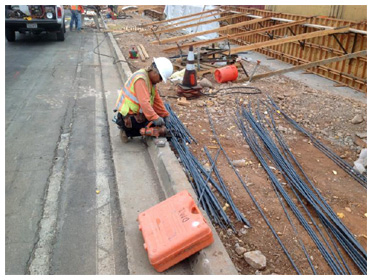 In a September 2014 study entitled Sinking Underground: The Growing Informal Economy in California Construction, misclassification of more than 39,800 construction workers is a key reason that the underground economy in construction is contributing to the low wages, difficulty in recruiting qualified craft workers and loss of wages and taxes in the State of California.
In a September 2014 study entitled Sinking Underground: The Growing Informal Economy in California Construction, misclassification of more than 39,800 construction workers is a key reason that the underground economy in construction is contributing to the low wages, difficulty in recruiting qualified craft workers and loss of wages and taxes in the State of California.
According to the study, released by the Economic Roundtable, a non profit research organization based in Los Angeles, in 2011 more than 143,900 construction jobs in the state were “informal” – code for off the books, misclassified as independent contractors or unreported by employers. The study looked at wages and construction jobs from 1972 to 2012 and found that the number of construction workers that were unreported or misclassified increased by 400% during that period.
The study looked at wages and construction jobs from 1972 to 2012 and found that the number of construction workers that were unreported or misclassified increased by 400% during that period.
The study cites that, “Specialty trades, such as drywall, have the highest level of informality with over 25% employed informally in 2012. Building Construction was next, with 20% estimated to be informal.”
The major impact on the industry is that those construction companies in California who are “doing it right” have costs that are 30% higher that the “off the books and misclass” contractors. Imagine what that disparity does to the bidding process. The report cites several personal stories to illustrate its points.
The study makes several recommendations:
- “Enforce labor, tax, employment, licensing, and payroll laws and support collaborative enforcement efforts.
- “Seek legislative or regulatory reforms that focus on the parties that enable the growth of the underground economy.
- “Conduct an aggressive and sustained media campaign to expose violators.
- “Establish a wage floor, so informal workers are paid at the same level as those in the formal sector.
- “Expand policy initiatives that support high-road contractors.”
Those recommendations seem great on the surface, but one in particular bothers us. The recommendation about “establishing a wage floor or ‘Fair Wage’.” It recommends paying the “informal workers” the same as the “formal” workers, and that might be a little misinformed without making sure that it is linked with enforcement. Even though the researchers used an input-output model for the study and the “fair wage” for the wage levels, it should be clear that without making the owners, contractors and subs pay medical benefits, employment benefits, workers’ comp insurance, disability insurance, overtime and taxes, you are encouraging a system where hiring the “informal” unreported or misclassified workers becomes the accepted system. Sure the workers get higher wages, but without adequate enforcement, everyone loses.
It is an interesting study and one that the construction industry and the enforcement agencies in the other states should take notice of.
You can download a copy of the complete study in the attachement below.
Images courtesey of Economic Roundtable.



Comments
Cal Fraud Report has two new take-aways
A couple of new important items in the report. The number of unreported/off-the-books workers dwarfs the 1099 misclassified workers. So what we have in the construction industry is a fraud problem and not a "confusion" problem. Second, the industry is on an unsustainable path. The more skilled workers are older and are leaving the workforce. Younger workers are less skilled with little loyalty to the industry, so they come in and leave. And who can blame them when wages are low and employment conditions are frequently illegal? You can't expect to attract and retain skilled labor when they have no workers' comp protection, no unemployment insurance, no overtime and then they're expected to pay their employer's half of employment taxes. Of course they will look for better opportunities.
Two new take-aways from Cal fraud report
A couple of new important items in the report. The number of unreported/off-the-books workers dwarfs the 1099 misclassified workers. So what we have in the construction industry is a fraud problem and not a "confusion" problem. Second, the industry is on an unsustainable path. The more skilled workers are older and are leaving the workforce. Younger workers are less skilled with little loyalty to the industry, so they come in and leave. And who can blame them when wages are low and employment conditions are frequently illegal? You can't expect to attract and retain skilled labor when they have no workers' comp protection, no unemployment insurance, no overtime and then they're expected to pay their employer's half of employment taxes. Of course they will look for better opportunities.
Add new comment